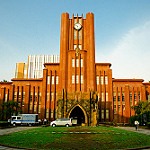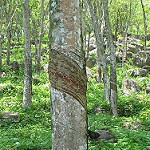
GM/Biotech Crops Report – May 2017
2nd May 2017- GM/Biotech Crops Monthly Reports (BELOW) form part of BCPC’s free three-tier Biotech Crops Info service.
- This service also includes a weekly round-up of news from around the globe – see BCPC Newslink GM Crops section.
- Plus – Free access database on over 300 GM/biotech products covering 23 crops in the global market visit BCPC’s GM/Biotech Crops Manual – Register here for free access.
Already registered? Click here
GM/Biotech Crops Monthly Report May 2017
MEPs vote against growing GM MaizeIn a recent vote MEPs have decided to not allow the cultivation or the import of food or feed of GM maize in Europe. With the rest of the world quickly adopting these varieties, is this a form of backdoor protectionism? A group of 30 MEPs have also questioned the decision that there is no evidence to consider that glyphosate might be dangerous! More |  Source: Patrick Muller |
|---|---|

| Gene found that could increase maize yieldsresearchers at the Donald Danforth Research centre have identified a gene in green foxtail grass that seems to control seed (and therefore grain) yield. More |
Hybrid plants the easy wayTokyo University has engineered rice plants that do not flower because of over-expression of a repressor gene. This would mean no yield but they have also engineered an ‘on’ switch which is triggered by application of specific agrochemicals. In this way plants can be grown in the vegetative stage before flowering is switched on at a time of the grower’s choosing! Could this technique be of benefit in synchronising the flowering of hybrid varieties? More |  Source: Daverson Borja |
 Source: fdecomite | Who needs Phosphorus?Researchers at the University of Pennsylvania have identified two genes that help plants cope with stress and a lack of phosphorus in the soil. Reduced levels of the SERATE gene caused root hairs to become longer while overexpression of GRP8 allowed the plants to thrive under very low phosphate levels in the soil: More |
New tool for editing the human genomeCRISPR/Cas9 editing is a useful tool for editing plant genomes but a new one, CRISPR-Cpf1 shows promise for correcting some genetic disorders in humans because of its smaller size. It has been used to successfully correct the defect that causes Duchenne muscular dystrophy in miceome longer while overexpression of GRP8 allowed the plants to thrive under very low phosphate levels in the soil: More |  Source: NIH Image Gallery |
 Source: Ivan | Genes have volume controls besides on/off switchesBesides the important genes, genomes contain a lot of rubbish dna that appears to have no function. Now it seems that some of this ‘rubbish’ is a control system for how active a gene is in the metabolism. More |
Whoops there goes another rubber tree plant!Rubber can come from the rubber tree plant of Asia or can be made from petroleum but small quantities can also be obtained from the guayule plant, a woody shrub that grows in southwestern USA. Now researchers have made some genetic edits to this plant that result in greater biomass and more importantly, more rubber production. Soon American cars could be rolling on tyres made from home-grown rubber since Bridgestones are also involved in the project. More |  Source: Pavithri Attanayake |
|---|---|
The latest additions to the GM/Biotech Crops Manual database are: |
- T304-40 – Cotton with glufosinate tolerance and Lepidopteran insect resistance approved for food and feed use in Malaysia.
- LLCotton25 – Cotton with glufosinate tolerance approved for food and feed use in Malaysia.
- GHB119 – Cotton with glufosinate tolerance and Lepidopteran insect resistance approved for food and feed use in Malaysia.
- MON88701 – Cotton with tolerance of dicamba and glufosinate approved for food, feed and environment use in Brazil and for food use in Columbia.
- GHB614 x T304-40 x GHB119 x COT102 – Cotton with glufosinate and glyphosate tolerance and with Lepidopteran insect resistance approved for food, feed and environment use in Brazil and Japan.
- New stacked event – MON87427 x MON89034 x TC1507 x MON87411 x 59122 – Maize with glyphosate and glufosinate tolerance and resistance to Lepidopteran and Coleopteran insects – approved for food use in South Korea.
FOR INSTANT ACCESS TO GM BIOTECH MANUAL CLICK HERE (Registration required)
Already Registered? Click here to access

